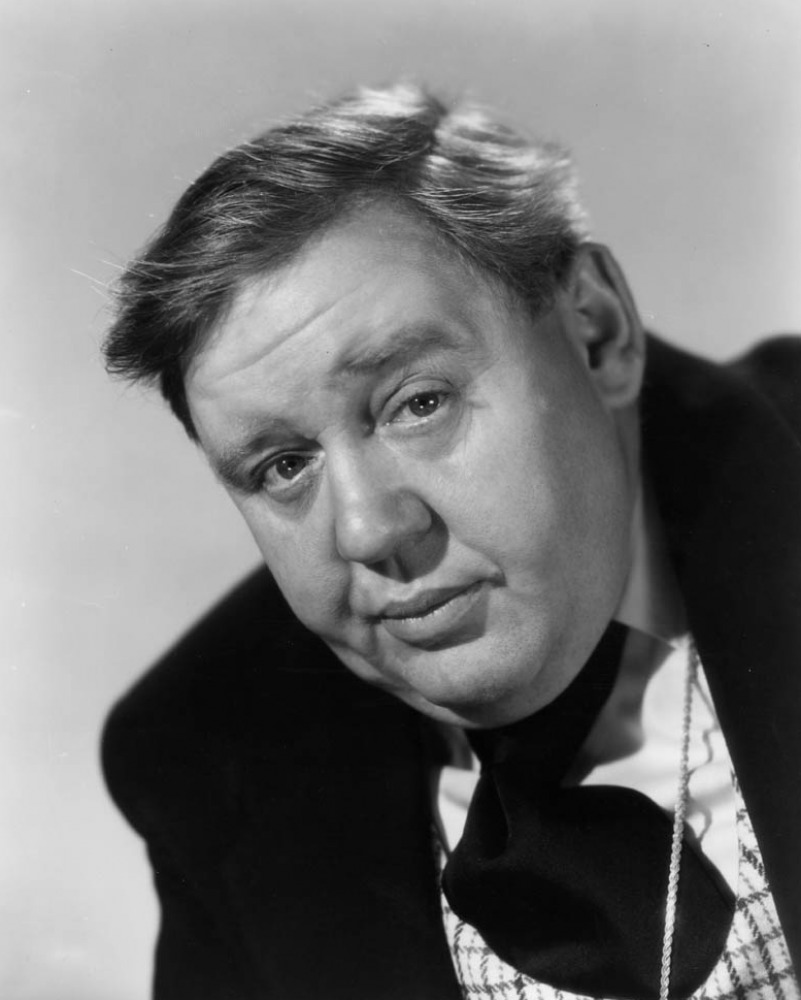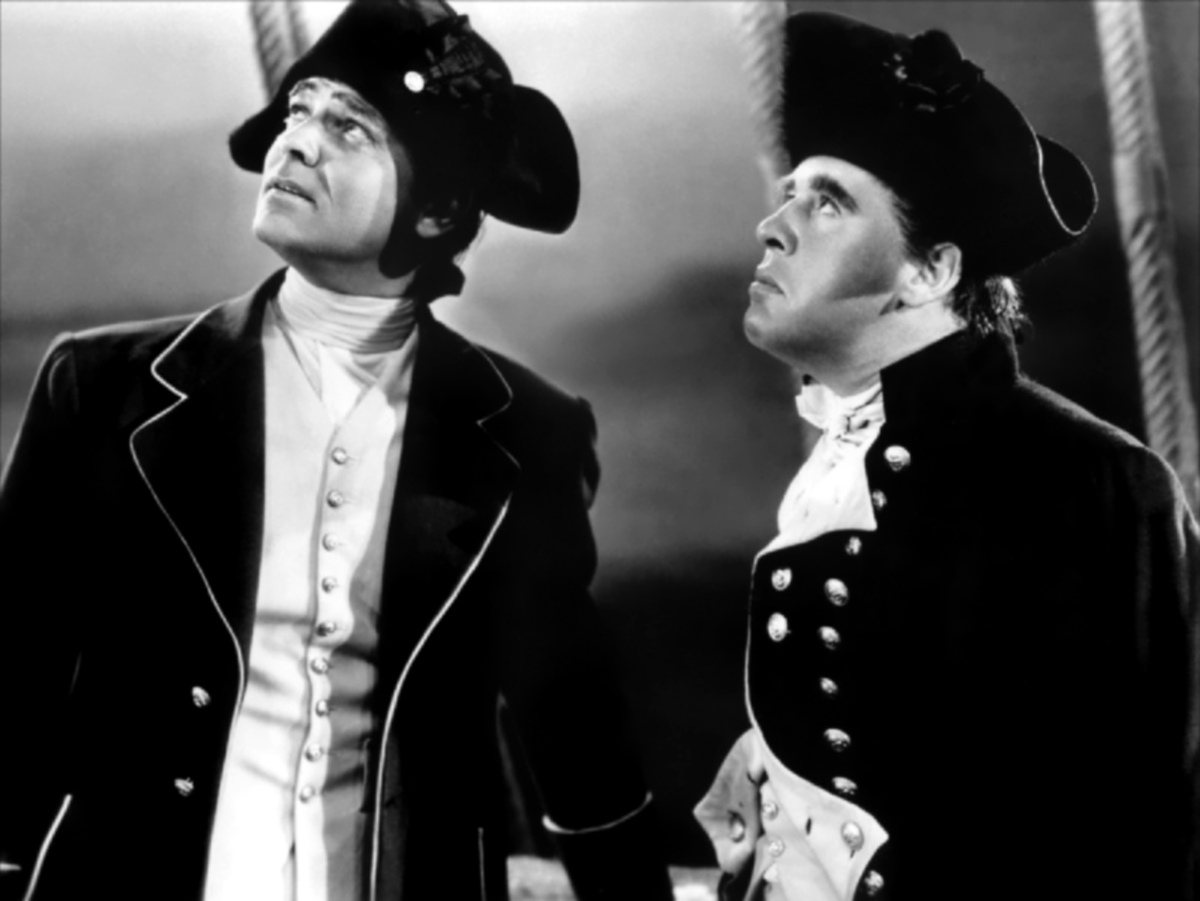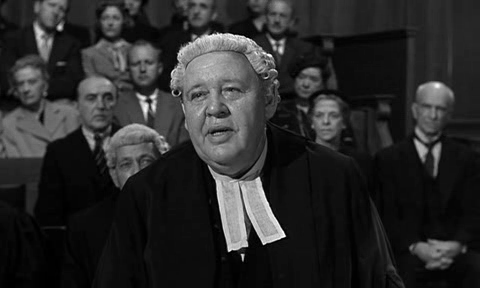
Want to know the best Charles Laughton movies? How about the worst Charles Laughton movies? Curious about Charles Laughton’s box office grosses or which Charles Laughton movie picked up the most Oscar® nominations? Need to know which Charles Laughton movie got the best reviews from critics and audiences and which got the worst reviews? Well you have come to the right place….because we have all of that information.
Charles Laughton (1899-1962) might have been the greatest character actor of all-time. Laughton went from being a hotel clerk to studying at the Royal Academy of Dramatic Art to stage success on London stages to becoming an Oscar® winning actor in Hollywood. Laughton starred in over 50 movies from 1929 to 1962.
His IMDb page shows 65 acting credits from 1928-1962. This page currently ranks 45 Charles Laughton movies from Best to Worst in six different sortable columns of information. Television shows, shorts, cameos and movies not released in North America were not included in the rankings.

Charles Laughton Movies Can Be Ranked 6 Ways In This Table
The really cool thing about this table is that it is “user-sortable”. Rank the movies anyway you want.
- Sort Charles Laughton movies by co-stars of his movies.
- Sort Charles Laughton movies by adjusted domestic box office grosses using current movie ticket cost
- Sort Charles Laughton movies by domestic yearly box office rank
- Sort Charles Laughton movies how they were received by critics and audiences. 60% rating or higher should indicate a good movie.
- Sort by how many Oscar® nominations each Charles Laughton movie received and how many Oscar® wins each Charles Laughton movie won.
- Sort Charles Laughton movies by Ultimate Movie Rankings (UMR) Score. UMR Score puts box office, reviews and awards into a mathematical equation and gives each movie a score.
- Use the search and sort button to make this page very interactive.
Stats and Possibly Interesting Things From The Above Charles Laughtonl Table
- Nineteen Charles Laughton movies crossed the magical $100 million domestic gross mark. That is a percentage of 42.22% of his movies listed. Spartacus (1960) was his biggest box office hit.
- An average Charles Laughton movie grosses $107.20 million in adjusted box office gross.
- Using RottenTomatoes.com’s 60% fresh meter. 33 Charles Laughton movies are rated as good movies…or 73.33% of his movies. Witness for the Prosecution (1957) is his highest rated movie while Girl From Manhattan (1948) is his lowest rated movie.
- Seventeen Charles Laughton movies received at least one Oscar® nomination in any category…..or 37.77% of his movies.
- Four Charles Laughton movie won at least one Oscar® in any category…..or 8.88% of his movies.
- An average Ultimate Movie Rankings (UMR) Score is 40.00. 30 Charles Laughton movies scored higher that average….or 66.66% of his movies. Mutiny on the Bounty (1935) got the the highest UMR Score while Girl From Manhattan (1948) got the lowest UMR Score.

Adjusted Worldwide Grosses on 12 Charles Laughton Movies
- Barretts of Wimpole Street, The (1934) $245.70 million in adjusted worldwide gross
- Bribe, The (1949) $135.90 million in adjusted worldwide gross
- Forever And A Day (1943) $156.30 million in adjusted worldwide gross
- Man From Down Under, The (1943) $85.60 million in adjusted worldwide gross
- Mutiny on the Bounty (1935) $508.50 million in adjusted worldwide gross
- Payment Deferred (1932) $33.50 million in adjusted worldwide gross
- Stand By For Action (1942) $266.20 million in adjusted worldwide gross
- They Knew What They Wanted (1940) $73.30 million in adjusted worldwide gross
- Tuttles of Tahiti, The (1942) $73.40 million in adjusted worldwide gross
- Under Ten Flags (1960) $53.10 million in adjusted worldwide gross
- White Woman (1933) $54.00 million in adjusted worldwide gross
- Young Bess (1953) $183.00 million in adjusted worldwide gross
Academy Award® and Oscar® are the registered trademarks of the Academy of Motion Arts and Sciences. Golden Globes® are the registered trademark of the Hollywood Foreign Press.
STEVE/WORK HORSE/JOHN: LAUGHTON PART 1 This is a summary then of my personal perceptions and contentions in the Laughton matter:
(1) Charles was a major star of the 1930s and never recaptured his status of that decade.
(2) he was also a great supporting/character actor THROUGHOUT his career – ie in that category he was never away so never came back
(3) whether in lead or supporting role he was always a joy to watch.
(4) in modern lists that I have seen he has done well when ranked among actors GENERALLY but so far I have found no character or supporting actors list that even mentions him indicating that among some film fans today perhaps he is regarded as having been a lead actor or else that his reputation [mistakenly] has now diminished. Some critics contend he went over the top.
(5) as an all-round performer in both lead and character-type roles I personally rank Charlie alongside the likes of Tracy, March and Brando
(6) as purely a character actor I would place him just below Brennan but am not dogmatic about that because the two were different types of character actors and anyway to again quote the Duke in Rio Bravo “Sure wouldn’t like to live on the difference!”
(7) with regard to Myrna Loy my quarrel was with the status that OTHERS were conferring on her as to the best of my knowledge she has never made hyperbolic claims for herself. Anyway a woman who was the best friend of Crawford can’t have had too much wrong with her!
2 He’s done it again! Lensman picked a subject that has got us fighting like rats in a sack! Can he not choose a non-controversial star like Cheetah, Lassie or Asta? On second thoughts cancel that last suggestion as dwelling on Asta would probably let some people out of their cages again to froth at the mouth about the Work Horse’s Queen and! a positive thing about Steve’s Laughton profile and the resulting controversy is that apart from fine artwork they may have hastened the expanded Laughton stats update for which I have waiting and which I warmly welcome. Certainly Charles richly deserves this page
LAUGHTON PART ONE
BRUCE/JOHN/STEVE 1 Trust the Work Horse to have HITHERTO acquired a book on character actors! Actually Charles continued throughout the 1940s to have top billed/lead roles in many films: 1942 The Tuttles of Tahit i/1943This Land is mine/1944 The Canterville Ghost & Suspect/1945 Captain Kidd/1949The Man on the Eiffel Tower.
However I think that Charles like Myrna is one of those stars who falls into the category of receiving top billing and/or a starring role when there is no other big star in the movie.
2 Accordingly there is no reason for excluding from definition as a character actor someone who many times was both a lead actor and a supporting one and therefore Charles played enough supporting and character parts to be among those considered for the accolade of greatest character actor of all time.
3 However I would still argue that there was no 1950s “comeback” because he never really went away in his ‘other’ career as a fine supporting actor and in the forties played superb lesser roles in a number of movies that were commercial and/or critical hits such as It Started with Eve, Because of Him, and the Big Clock and the Paradine Case. In fact my Deanna who idolized him was full of praise for his contribution to the two movies he made with her in 1941 and 1946.
4 I think that possibly there is at times the misconception that to qualify as a character role the part has to be someone bizarre like a deformity, a mad emperor, a drunk, or an eccentric barrister whereas Walter Brennan’s reputation as one of the greatest character players did not rest on such parts. There was a joke that in Classic Era Hollywood playing a drunk or a priest was Oscar friendly!
4 See also part 2 to avoid convolution of any one post.
Bob (& Steve & Cogerson)
Hi Bob. I am actually a lot more interested In YOUR opinion than some supposedly “definitive” opinion from somewhere like IMDB (lots of those voters probably haven’t even seen many 1930’s movies) or this or that magazine and its twenty-something writers. So
What is your definition of a character actor?
My judgment was Laughton was the top character actor of the 1930’s based on range of roles and performances during that decade. If you disagree, why?
Who do you rate higher in the 1930’s? Lorre? Muni? Beery? Robinson? Someone else? YOU are an expert in my judgment, so give me your opinion. I’m interested in it.
I have thought about the best character actors by decade through the 1970’s and came up with this list–
1920’s—–Lon Chaney
1930’s—–Charles Laughton
1940’s—–Edward G. Robinson
1950’s—–Broderick Crawford
1960’s—–Ernest Borgnine
1970’s—–George C. Scott
Where am I going wrong and why?
Hey John. I like your breakdown by decades. I used to have a character actor book…..but somehow I have misplaced it. To me a character actor is someone who rarely gets to be the lead in a movie.
Using that simple rule I would have to not include Lon Chaney in the 1920s…because he was one of the biggest stars working…though I do not know enough about that time frame to give a better pick.
1930s….Laughton is a good pick…..but it would be close with Walter Brennan….Brennan won 2 of the first three Best Supporting Oscars in the 1930s….plus 3 of the first five awards in that category. Another candidate would be Thomas Mitchell who got a Best Supporting Oscar for 1939’s Stagecoach.
1940s…..I like your pick of EGR….but I would go with Donald Crisp in the 1940s….he got his Oscar in the early 1940s….and has many memorable roles in the 1940s.
1950s…..i would go with Jack Palance, Charles Boyer, your 1960s pick Borgnine and Lee Marvin as possibles.
1960s….I like EGR here….by this point his problems of the 1950s were behind him….and he has many great supporting roles in the decade….with The Cindy Kid being my favorite.
1970s….George C. was a leading man…..I would go with John Cazale here….only five movies….but what a great bunch of movies.
1980s – today. Favorites would include Christopher Walken, Steve Buscemi, Michael Shannon, Christoph Waltz, Samuel L. Jackson, Martin Landau and Sir Michael Caine.
Tons of names here….and I did not mention the quartet from Casablanca….Peter L., Sydney G., Elisha C. and Paul H.
Just my two cents.
Sorry just realize I gave Elisha Cook Jr. credit for Casablanca…..I was thinking about his role in The Maltese Falcon. Donald Sutherland is also another name I thought of after hitting submit.
Cogerson
thanks for your two cents.
I am very solid with my picks for the twenties, thirties, and forties. And I like Scott for the seventies. For me he is a character star. I see a role like Patton as a character role.
My picks for the fifties and sixties are far shakier. I certainly considered Brennan, especially for the fifties.
My bottom line was which actor vanishing from Hollywood history during the decade would have left the biggest hole in movie history. On that basis I am very comfortable with Chaney, Laughton, and Robinson for the decades I picked for them.
Bob brought up Spencer Tracy which leads to another point concerning the term character actor. Some actors are almost purely leading men. I would say Cary Grant is almost a 100% leading man. Ditto Clark Gable. Charles Laughton is almost 100% a character man. So is Lon Chaney. But many actors are a mix, even if our overview is restricted to their primes. Tracy was a mix. He did leading man roles. He did character turns. I suppose I would say Tracy was something like 60/40 a leading man. Bogart is similar. Brando was about 50/50.
Of course many actors age from leading men to character men, but that is a different issue.
You mentioned Charles Boyer for the fifties. I can’t recall a memorable role he played in that decade. My image of him is as an ultimate romantic lead back in the thirties and forties–“Come wiz me to the Casbah.”
Hey John….my fault….I meant to say Charles Bickford instead of Charles Boyer. Bickford had The Big Country, Jim Thorpe and A Star Is Born in the 1950s.
I also forgot to mention Vincent Price…which is one of Steve’s favorites…almost all of his roles prior to House of Wax would fall in the character actor category…with Song of Bernadette, Laura and Leave Her To Heaven being standout Price roles.
Thanks for sharing your thoughts on this subject.
Wow….all of your comments and visits to this page have helped Laughton pass our newest page. Did not see that coming…..granted Vin is starting off pretty slowly….but still Laughton getting more views than The Diesel. Double WOW!
Yes and I see Bob has gone all anti-Laughton on us, giving poor Myrna a much needed break. 🙂
It’s John’s fault for daring to say Laughton was quite a good character actor, and Bruce doesn’t help much with his “might have been the greatest character actor of all time” announcement at the top of the page. All I said was he was the best Quasimodo on film… okay I did mention the word ‘genius’ once but I didn’t think anyone would notice, he tearfully confessed.
HI STEVE
1. At least this timeWork Horse didn’t go into hyperbolic overdrive by anointing Laughton the greatest box office star of all time after Myrna Loy and that Charles was the greatest character actor is a respectable opinion whether one agrees with it or not because he was undoubtedly a great actor and certainly AMONG the greatest .If Bruce thinks he’s the best who cares if Ustinov prefers Larry or Spence.
2 However I got the impression from the way that Peter spoke in the TV interview that he hadn’t really thought much about the matter but knew that Laughton expected to be named by Peter who as a matter of principle wasn’t going to pander to Charlie’s perceived egotism.
3 Ustinov himself was much admired in his day and the former British Prime Minister Edward Heath was always found sitting in audiences at Peter’s one-man stage shows and hanging on to Peter’s every word. Peter would not have been of the same political persuasion as Ted Heath and in the TV interview that I mentioned Ustinov confessed to being so depressed on the evening of Margaret Thatcher’s first British general election victory that he locked himself in a London underground loo and didn’t come out for 2 hours. He made an awful Hercule Poirot though being too big for the part in my view. Nice chatting with you again and I’ll be back when I’ve seen your next video.
Hey Steve….I was choosing to ignore that part of Bob’s comment….lol. But since he brought it up….if you like at the Big 3 of character actors back then….Mr. Laughton has an average gross of $107.20 million per movie…..that is right in line with Donald Crisps’ $108 million per movie and a little behind Lionel Barrymore’s $113 million average. Just in case somebody was interested…lol. 🙂
STEVE
He’s back!
Spring Break here. Day 5 of 9 is coming to a quick end.
STEVE/JOHN
LAUGHTON PART 3
1 If you look at what IMDB terms as the “definitive” list of the 100 Greatest Actors of All Time you will see that Charles is listed as low as no 37 with not just the ‘usual suspects’ of Tracy, Mr M and Olivier ranked well above him but also later actors such as Sir Maurice Micklewhite and character actors like Nicholson, Jason Robards, Bobby Duvall and the late great Philip Seymour Hoffman.
2 Also the Premier Magazine’s list of the 100 Greatest single PERFORMANCES of all time does not include even one Laughton role whereas most of the stars that I have just mentioned have their work included in that list too and even named twice were legends Mumbles [For Last Tango and Waterfront], Nicholson [for The Last Detail and Cuckoo’s nest]] and CARY GRANT [for Notorious and Bringing up Baby] . Yet Cary’s legend has always rested largely on his perceived charm and massive box office clout and – wrongly in my view – not on not on the perception that he was a a great actor.
3 I therefore think that it’s impossible not to conclude that Charlie’s reputation has declined over the years and to call him the greatest character actor of even the 1930s is perhaps hyperbole. I am sure that if we went on searching there will out there somewhere somewhere be a list that recognises a Laughton performance but I have scoured 7 lengthy ones this morning and he was always totally missing from all of them whilst even the Duke [another great star who like Cary was not especially noted for his acting range] appeared on a couple of lists for his powerhouse performance as Ethan Edwards in The Searchers – a selection with which I wholeheartedly agree.